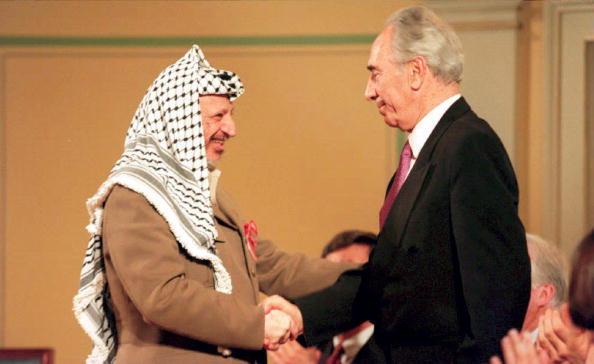The death of Shimon Peres reminds us how far modern Israel has come from seeking peace
His record was not unblemished, but the passing of the former Israeli prime minister marks more than a death of a world leader

Your support helps us to tell the story
From reproductive rights to climate change to Big Tech, The Independent is on the ground when the story is developing. Whether it's investigating the financials of Elon Musk's pro-Trump PAC or producing our latest documentary, 'The A Word', which shines a light on the American women fighting for reproductive rights, we know how important it is to parse out the facts from the messaging.
At such a critical moment in US history, we need reporters on the ground. Your donation allows us to keep sending journalists to speak to both sides of the story.
The Independent is trusted by Americans across the entire political spectrum. And unlike many other quality news outlets, we choose not to lock Americans out of our reporting and analysis with paywalls. We believe quality journalism should be available to everyone, paid for by those who can afford it.
Your support makes all the difference.When a political figure dies, we’re often expected to respect their memory and show some humanity; talk politics or begin to dissect their legacy is unfitting so soon after someone has passed. But though the death of Shimon Peres is still very recent, it is vital that what he stood for is unpicked before he is enshrined as a warrior for peace, his place in the history books ensured.
A founding statesman of Israeli politics, four stints as prime minister and a long term as president the pinnacle of his long career, Peres’s efforts towards peace in the region acquired him a Nobel Peace Prize.
The signing of an attempted peace agreement between the two parties through the Oslo Accords marked a moment in history that cannot be ignored. The state of Israel would finally recognise the Palestinian Liberation Organisation, and vice versa. For some, this was seen as a commitment to peaceful negotiations and not warfare being written into the accords, although in reality the deal gave the Palestinians very little.
Unlike many contemporary Israeli leaders, Peres was willing to sit at a table and talk – even if what he was offering was never enough to make real progress towards peace.
But less discussed moments in his life paint a more complex picture. Peres himself arrived in Palestine in the early 1930s. Aged 24, he signed up voluntarily to the “Haganah”, the militia fighting for Israeli independence and Jewish self-determination – an organisation that helped carry out the Nakba (Palestinian Exodus) before, in 1948, the state was founded. Hundreds of thousands were displaced, villages were emptied, and innocent Palestinian people were killed.
And it wasn’t just in his youth that Peres’s credentials as a man of peace and justice come into question. His support for settlements in the West Bank, one of the most controversial and damaging policies of successive Israeli governments, was unapologetic.
He led the 1996 attack on Lebanon which saw 106 civilians seeking shelter in a UN compound killed in the Qana Massacre (the United Nations was never convinced this was an error); he defended deadly assaults on innocent civilians in Gaza; he oversaw an Israeli nuclear weapons programme while in charge of defence.
A fitting winner of the Nobel Peace Prize? I’ll leave you to decide.
But the passing of Shimon Peres marks more than a death of a world leader. This is something that, among the eulogies and ceremonies, it is imperative that we don’t forget.
Peres was the final politician who himself could have taken some responsibility for what happened in the 1940s. He was as an active fighter in the so-called “War of Independence”, the last living statesman to have witnessed first-hand the devastation that the creation of the state of Israel caused.
As the current Israel-Palestine conflict becomes entrenched, and Netanyahu’s government lurches further and further to the right, what happened in 1948 is dissolving from living memory among modern Israelis.
If Peres had been committed to peace in the future, he had a responsibility to admit the mistakes of the past: he could have reached out with an olive branch, accepted errors, and admit that there were mistakes that could not be ignored.
The stalemate that exists must be broken. Peres’s death is a stark reminder of how far we have drifted from any attempts for true peace, when even the basic principles of pluralism and debate to achieve a peaceful outcome have disappeared from much of contemporary Israeli debate.
To deify the man now does the peace process no service, but his lesson of at least sitting around a table and talking is one that Israel’s current leadership ought to heed in his memory.
Join our commenting forum
Join thought-provoking conversations, follow other Independent readers and see their replies
Comments